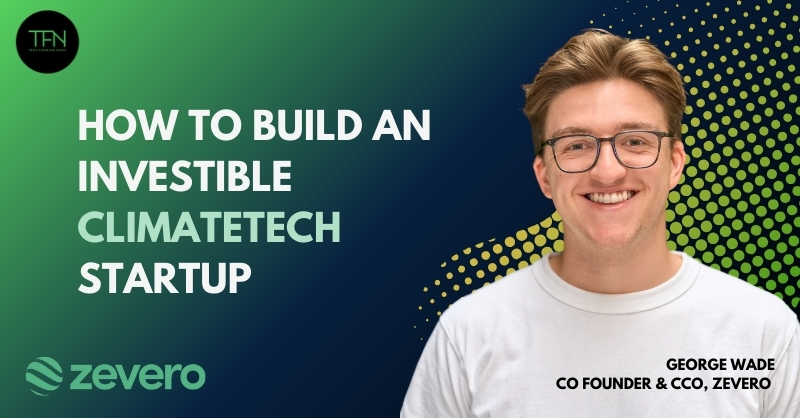
Zevero, a carbon management solution that has seen rapid growth since its inception in 2021, recently acquired and raised a $7M seed round.
Find a problem, define your niche and fix it incredibly well
The world is full of problems—climate change is no exception. Problems are opportunities: they drive innovation, define markets, and shape how businesses deliver value. However, trying to tackle too many at once can be a distraction.
To build an investible startup, clarity is very important. Define what you are—and, just as importantly, what you’re not. Trying to be everything to everyone often leads to being outpaced by a competitor who dominates a specific market.
When my Co-Founder, Ben, and I founded Zevero, we were 23 and didn’t fully grasp the value of focusing on a niche. We saw a massive opportunity in climate tech and wanted to tackle it all.
Conversations with brilliant VCs, like Jos White from Notion VC, helped us understand the value of a defensible niche. Advice from those who have built successful companies before helped us shape our focus.
When you set out to build a new venture, it’s easy to think you’ve got it all figured out, but you don’t and that’s okay. Building an investible startup requires humility and the willingness to learn from others.

Deliver value and build around it
Your most important investors aren’t VCs—they’re your customers. A product built around customer needs is far more likely to achieve long-term adoption.
Customer traction becomes especially critical as you grow. Whether you’re looking to raise a seed round or scale to Series A, understanding and demonstrating the value you provide is non-negotiable.
The most successful climate tech startups place their customers at the heart of everything. This starts with understanding their pain points, then creating a solution that not only addresses those challenges but does so better than any alternative on the market.
This means continuously refining your product positioning and adapting to market demands. Success often comes from saving companies time and money while unlocking new business opportunities.
As we’ve scaled, tailoring solutions to specific customer profiles has been essential. Highlighting clear benefits—such as reducing time spent on manual processes or improving operational efficiency—has resonated with customers and investors alike.
Be mission-obsessed
Starting and building a company is incredibly difficult, but having an unrelenting passion for what you do makes it significantly easier.
When I started Zevero in 2020 at 23 years old, I had no experience in building a company. What I did have was firsthand experience with the problem we were solving and an unwavering commitment to tackling climate change.
The journey hasn’t been without its challenges. There have been hurdles, dead ends, and moments of doubt—and no doubt, there are more ahead. But staying mission-driven, focusing on customer impact, and defining what we do exceptionally well has enabled us to build a company that drives tangible results for both our customers and investors.
The bottom line
Building a climate tech startup requires focus, resilience, and a mission-driven approach.
The path isn’t easy, but with the right foundation and a clear sense of purpose, it’s possible to create a business that drives meaningful impact.
George Wade is the Co-Founder of Zevero and writes the Grumpy Optimist, a bi-weekly newsletter about positive climate news.
In the latest episode of TechTalks with TFN, we spoke with George about how Zevero is leveraging AI to drive sustainability, the journey from startup to acquisition, and his advice for other founders navigating the climate-tech space. Watch the full episode on YouTube here, and don’t forget to like and subscribe to Tech Funding News!
This article is part of a media partnership with Zevero. For partnering opportunities, contact akansha@techfundingnews.com or sales@techfundingnews.com.
The post How to build an investible climate tech startup appeared first on Tech Funding News.
